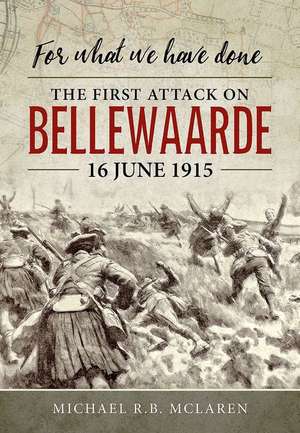For What We Have Done
Autor Michael R B McLarenen Limba Engleză Paperback – 10 feb 2020
Preț: 242.51 lei
Nou
Puncte Express: 364
Preț estimativ în valută:
46.41€ • 49.62$ • 38.69£
46.41€ • 49.62$ • 38.69£
Carte indisponibilă temporar
Doresc să fiu notificat când acest titlu va fi disponibil:
Se trimite...
Preluare comenzi: 021 569.72.76
Specificații
ISBN-13: 9781912390830
ISBN-10: 1912390833
Pagini: 480
Dimensiuni: 170 x 244 x 25 mm
Greutate: 0.77 kg
Editura: HELION & COMPANY
ISBN-10: 1912390833
Pagini: 480
Dimensiuni: 170 x 244 x 25 mm
Greutate: 0.77 kg
Editura: HELION & COMPANY
Notă biografică
Michael McLaren was born and educated in Glasgow. On leaving school he studied for a degree in pharmacy at the University of Strathclyde. Following graduation in 1991, he completed his training at a Glasgow hospital before joining his family's business in Clydebank, where he has worked ever since as a community pharmacist. A desire to learn about the military aspects of his family history led to an enduring interest in the Great War and in 2014 he graduated from the University of Birmingham with an MA in British First World War Studies. In his spare time, Michael enjoys researching all aspects of the Great War and especially visiting the battlefields of France and Belgium. His interest in the First Action at Bellewaarde stems from researching his grandfather's elder brother who was killed in action, age 21, on 16 June 1915 while serving with the Royal Scots Fusiliers. Beyond military history Michael enjoys the outdoors and particularly walking with his dogs. He is married, has three daughters and lives in Glasgow.
Descriere
For What We Have Done constitutes a detailed analysis of British trench assault tactics, as employed in the appalling conditions of the Ypres salient, mid-1915.
